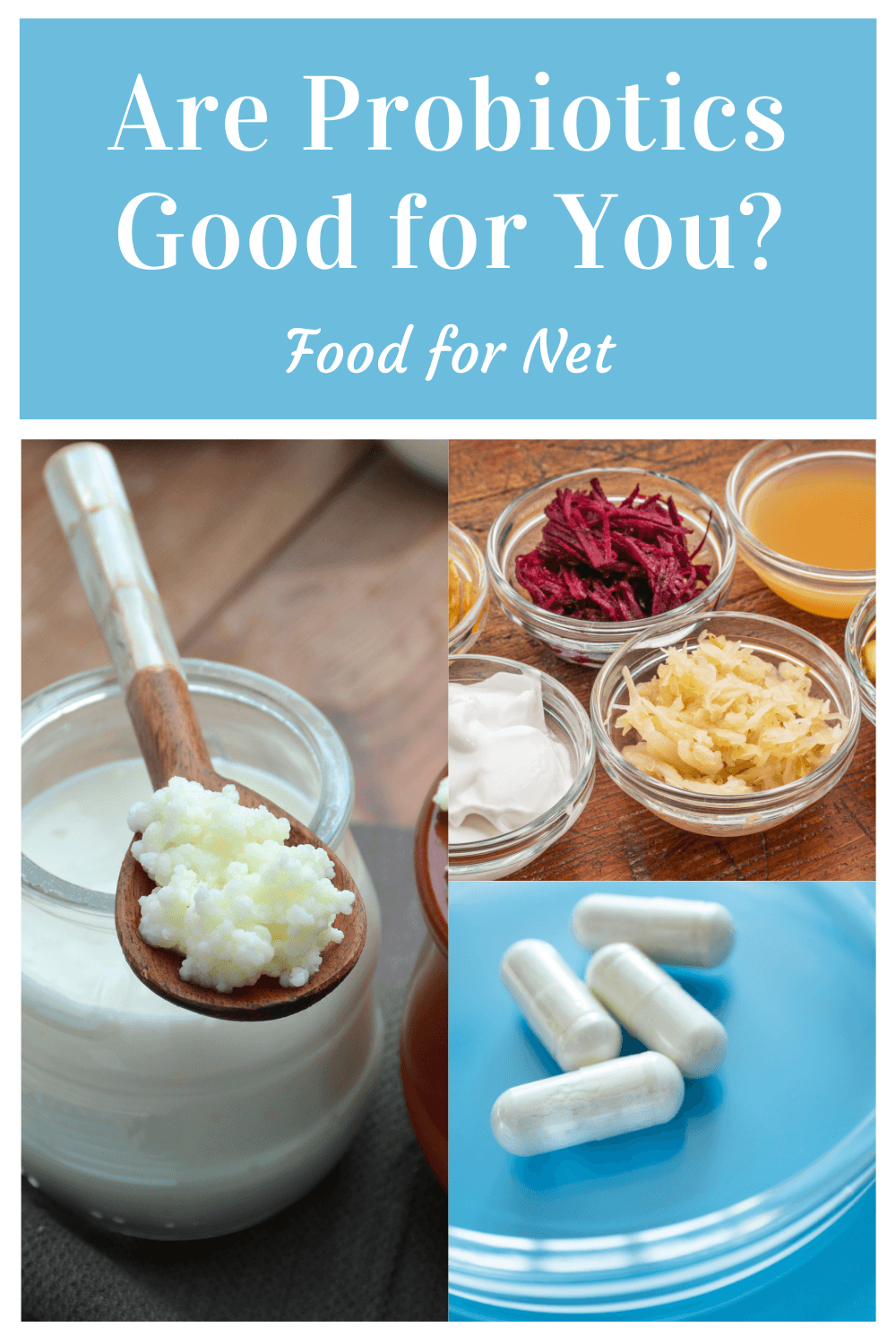
Probiotics are a trending topic, often promoted as a way to improve your health. They’ve been linked to all kinds of benefits, like helping with depression, improving your digestion, decreasing disease risk, and more. In fact, we’re now recognizing that the health of our gut might be as important as the health of physical organs in our bodies. This begs the question, are probiotics good for you?
In one sense, probiotics sound like a strange idea. They’re simply live microbes, ones that may help you, rather than harm you. You’re consuming these microbes, either in a supplement or some type of probiotic rich food or drink.
As for foods, probiotic bacteria mostly come from fermentation. So, you find probiotics in foods and drinks like kefir, yogurt, sauerkraut, kombucha, and tempeh. Such foods offer plenty of other benefits, including nutrients and antioxidants. But, before you get too excited about probiotics, let’s take a closer look at what they offer.
Are Probiotics Good For You?
- The Theory Behind Probiotics
- How Probiotics Might Help
- Why Probiotics Aren’t As Good As They Seem
- Probiotic Foods Versus Probiotic Supplements
- Final Thoughts
The Theory Behind Probiotics
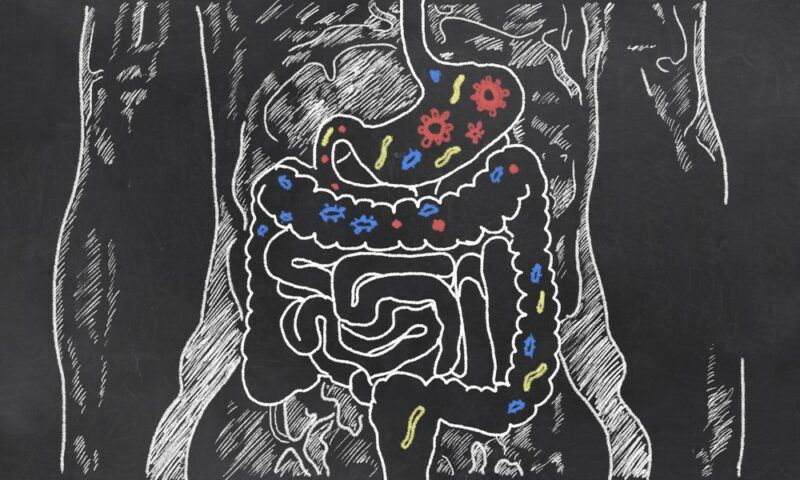
Did you know that not all microbes are bad? Our guts host around 100 trillion microbes and these have unexpectedly strong health impacts. When these microbes are abundant, diverse, and well-balanced, they can promote good immune responses, decrease the risk of disease, improve mental health, and much more.
When the microbiota in our gut is less abundant or poorly balanced, our risk of disease may be increased and our health can be worse overall. In fact, the microbes are so essential that scientists are beginning to call our guts a virtual organ.
Our balance of microbes is influenced by many things, including diet, the environment, and drugs (particularly antibiotics). There’s even a heritable component.
Getting too much sugar, protein, or saturated fat in your diet might decrease gut health, while nutrient dense whole foods like fruits, vegetables, and legumes, are likely to have the opposite effect.
Probiotics offer a way of directly improving the balance of microbes in your body, as you’re literally ingesting beneficial bacteria and yeast. This can be powerful, especially if your microbes were out of balance previously.
How Probiotics Might Help
The impacts of probiotics vary depending on the type of probiotic, the species of microbe, your gut health, and a variety of other factors. While there’s still much that we don’t know, research has already linked probiotics to plenty of benefits, including the following.
Can Help You Recover From Antibiotics
Antibiotics are an important tool for fighting infection. They kill off the bacteria that are harming us, improving our health, and even saving our lives in the process. But, antibiotics can’t discriminate between helpful and harmful bacteria. That’s a problem.
Because of this, your gut bacteria is compromised following a course of antibiotics. The effect can be even worse if you need to take antibiotics regularly.
Probiotics, on the other hand, help replenish your levels of good bacteria. Taking probiotics around the same time as antibiotics may reduce some of the side effects of antibiotics, including diarrhea.
They Promote Good Digestive Health
Gut bacteria are essential for the digestion of food. Taking probiotics can often help in this area.
The right balance of bacteria should make your body better able to digest food well. This could mean you get more nutrients from your food or have fewer problems with stomach aches, constipation, or diarrhea.
Probiotics may be especially powerful if you have a health condition that’s related to digestion in some way, like inflammatory bowel syndrome, Chron’s disease, or ulcerative colitis. Taking probiotics can help to decrease symptoms for these conditions, perhaps because an imbalanced gut contributes to them to begin with.
Could Promote Weight Loss
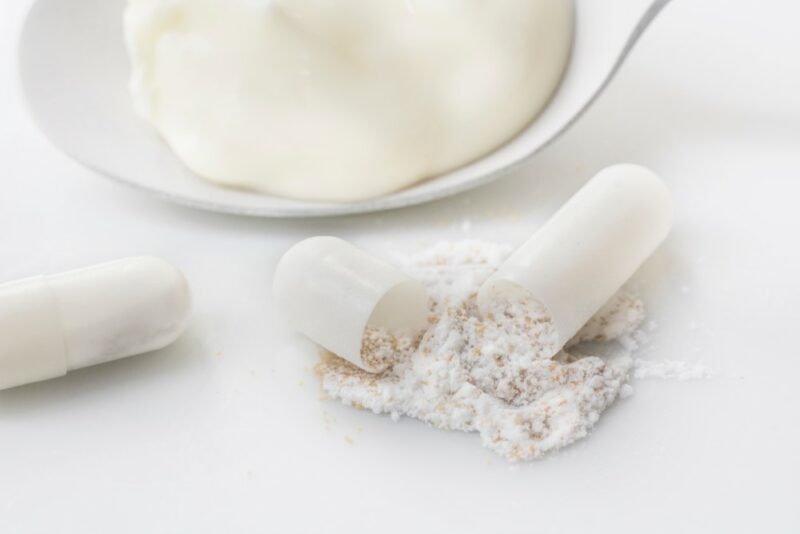
There are a few different links between probiotics and weight loss. The first is that probiotics could make your body more efficient at digestion, resulting in less stored fat. Indeed, the microbes might even prevent some dietary fat from being absorbed.
Probiotics may also influence the levels of some fullness hormones, helping you to feel more satisfied, and less likely to crave sugar. Such effects, make it easier to stick to healthy eating goals and lose weight.
There’s even the chance that some probiotics have a direct role in weight loss.
Always pay close attention when relying on probiotics in this way, as the weight loss effect isn’t guaranteed. You might even find that you gain weight with some probiotic strains instead of losing it.
Can Help With Heart Health
The connection between probiotics and heart health is another interesting area. This can happen because some probiotics break down bile in our guts, while others prevent cholesterol from being reabsorbed in the gut.
This combination of features may help decrease total cholesterol and LDL cholesterol while increasing HDL cholesterol. Of course, more work is needed to see the strength of the effect in humans and which types of probiotics are most powerful.
Still, probiotic foods are often nutritious and low in saturated fat. Those features might help with your heart as well.
May Improve Oral Health
Probiotics are mostly linked with gut health, yet they can also improve the healthy bacteria in your mouth. Because of this, probiotics might help to reduce bad breath, prevent plaque, decrease inflammation, and even reduce symptoms of gum disease.
This is an impressive set of features that’s often overlooked.
However, to get these oral health benefits, you do need to be a little cautious. Probiotics often come from fermented foods and some of these are acidic.
Kombucha, for example, can easily damage your tooth enamel. Rinsing your mouth out after drinking kombucha can help to decrease this risk (just don’t brush your teeth, as this may remove some of the already weakened enamel).
They Have Potential For Mental Health Treatment
Some studies have looked at probiotics for improving mood and treating depression. Strains from Bifidobacterium and Lactobacillus may be particularly effective here. Research has often focused on supplements, but probiotic foods could easily have the same benefits.
Mental health benefits make sense, as the bacteria in our gut may influence hormone levels, our mood, and even our cognition.
Plus, people with mental health conditions often aren’t eating well. If they’ve been depressed for a while, their gut health may be in poor shape, which is the time that probiotics are the most powerful.
There Are Unknown Benefits Too
These are just some of the areas that probiotics are thought to help in. They could be relevant for treating eczema, reducing allergies, improving your immune system, and perhaps more.
Because there’s so many species of gut bacteria, there could easily be effects that we haven’t even thought about yet.
Why Probiotics Aren’t As Good As They Seem

So far, probiotics sound fantastic. Yet, while there are plenty of benefits to probiotics, there are major issues too.
Probiotics Aren’t All You Need
While research is still ongoing, we do know that gut health is influenced by many things. Probiotics are part of the equation, but there’s much more to consider too.
You still need to eat a balanced diet, steer clear of processed food and excess sugar, and keep yourself healthy. Even decreasing stress might help with gut bacteria. You need prebiotics as well, as these provide fuel for the bacteria in your gut.
So, if lots of things are upsetting the balance of microbes in your body, probiotics mightn’t be enough to set things right.
Probiotics Mostly Help If Your Gut Is Unbalanced
Probiotics can be powerful at bringing your gut back to normal. This makes them excellent if your gut health has been compromised in any way, like after a course of antibiotics or following a poor diet for a long time.
However, if you’re already doing everything right, probiotics might not help much at all. Research even shows that healthy people often don’t experience any change to their gut bacteria after taking probiotics.
Picking The Right Strains Isn’t Easy
To get the most benefits, you need to be consuming the right strains of bacteria and yeast – the ones your body needs. This is tricky, as you don’t know exactly what’s going on in your gut. You certainly can’t know which strains of bacteria are lacking.
The best you can do is look at the research and see which strains of bacteria are linked to which benefits.
For example, Bifidobacterium lactis, Saccharomyces boulardii, Lactobacillus rhamnosus GG, and Lactobacillus casei may all be significant for treating diarrhea. If you’re dealing with constipation, lactose intolerance, or eczema instead, the desired microbes may be different.
Looking at research and choosing the right microbe strains is helpful, but only to a point. After all, studies look at averages, so they don’t speak to your individual needs. Research is also in its early stages and we often don’t know the best types of microbes.
Research Is Limited
Research suggests that probiotics have great promise. It’s also clear that our guts play a much larger role in health than we previously thought.
However, the field is relatively new and there’s a lot we don’t know. Researchers are still figuring out exactly how probiotics improve health, along with which probiotics are best in which situations.
Probiotic Foods Versus Probiotic Supplements
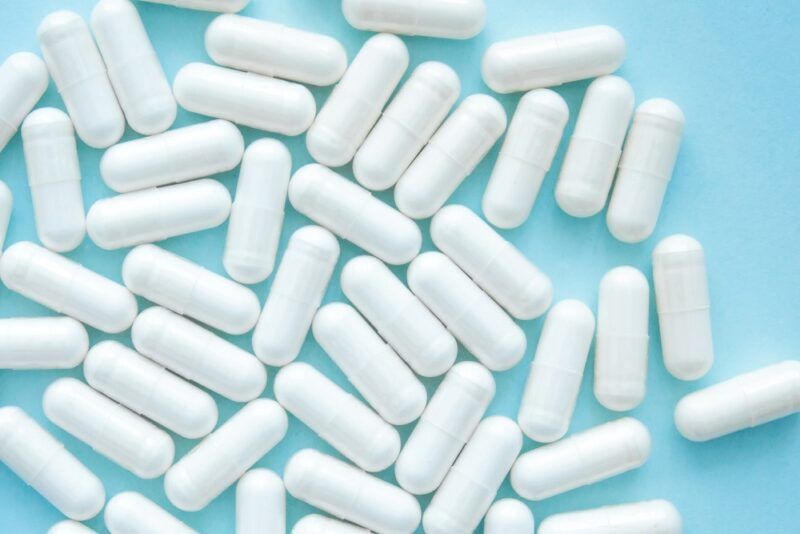
Whole foods tend to be healthier than supplements, giving you many more benefits, while also being lower in risk. This is true for probiotic food versus supplements too. However, the topic is a little more complex than normal.
Probiotic Rich Foods
There are plenty of probiotic foods and drinks, each with distinct features and different probiotic strains.
- Many are based on milk, like kefir, cottage cheese, yogurt, and cheese. These can come with the same nutritional benefits as other dairy products, along with familiar limitations. It’s important to be careful with choosing dairy products, as some contain live active cultures, while many don’t.
- Others rely on soy instead, like tempeh, miso, and natto. Soy is controversial, so these foods won’t appeal to everyone. Still, there are plenty of nutrients and the fermentation should make the soybeans easier to digest.
- Fermented vegetables are another option, including sauerkraut, kimchi, and pickles.
- Other options include sourdough bread, kombucha (which is made from tea), water kefir, and some fermented drinks.
Because these rely on whole food ingredients, you’re getting plenty of nutrients along with your probiotics. Some of them also contain prebiotics, which act as food for your gut bacteria.
You’ll get the most benefits by including many of these foods in your diet.
Variety is always important for health and is even more critical for your gut. The more diverse your gut microbiome is, the better the effects on your health.
Probiotic Supplements
Probiotic supplements don’t contain the same variety of nutrients and macronutrients as probiotic rich foods. They’re just a source of probiotics, that’s it.
Plus, supplements are always a little risky, as the FDA doesn’t require extensive pre-market testing. They only get involved if there’s a problem. This means that you can’t be certain that a supplement contains what the label says it does. Some may even be contaminated or contain unlisted ingredients.
Even so, the supplements can be useful.
For one thing, probiotic supplements are much more targeted than food. You know which microbe strains are present, along with the amount. Fermented food, on the other hand, is all over the place. The microbes can even vary from batch to batch and you never know exactly what you’re consuming.
Knowing the microbes helps enormously if you’re tackling a specific health condition. You could work with a doctor and dig into the research to find out which bacterial strains might help with the problem you’re facing.
Some supplements will be more concentrated than probiotic foods too. This can be helpful when you’re trying to improve a specific health condition.
Finally, probiotic supplements tend to be allergen-free and are well tolerated. In contrast, probiotic foods are often rich in dairy or soy. Many people experience side effects from probiotic foods too, like digestive reactions due to acidity.
Which Should You Choose?
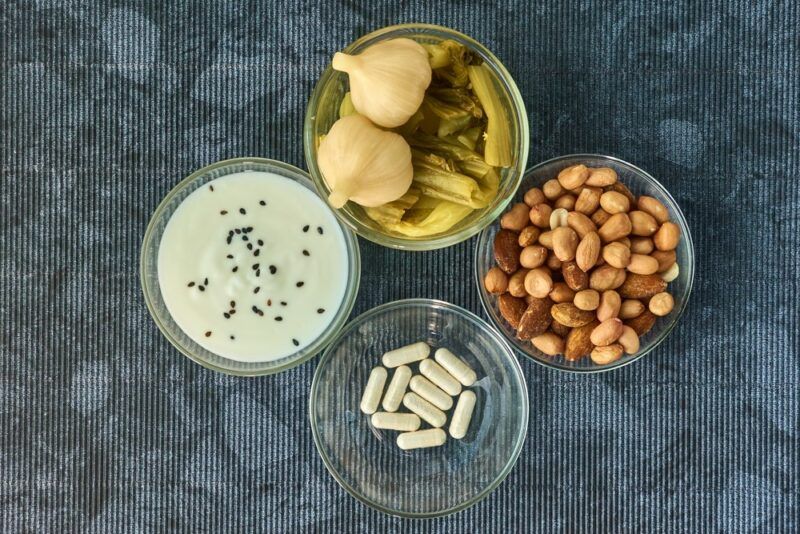
Probiotic foods are a better choice in most situations, as the foods all provide nutrients and other important compounds – making them more powerful than supplements. Plus, you can make probiotic foods yourself, which gives you control over the quality.
Supplements are riskier, as you can’t be certain that they’ll match the claims on the label. Still, supplements can be helpful if you have a specific health condition that you want to improve or if you can’t tolerate many probiotic foods.
If you’re taking the supplement route, be sure to research the product first. Look for brands that have been tested by a third party. This way you know what to expect before you pay any money.
Final Thoughts
Probiotics can be good for you, but perhaps not as much as you expected. They’re best used as a way to restore an imbalanced microbiota, particularly if you were recently sick and needed to use antibiotics.
Probiotics may also be helpful for specific conditions, like depression. Indeed, some health conditions could be linked to an imbalance in your gut bacteria to begin with. If you are targeting a specific condition like this, be sure to look at which species of microbes have been shown to provide benefits. For those of us who are healthy already and eat a varied diet, probiotics might not have any effect at all.
Frequently Asked Questions
When’s The Best Time To Take Probiotics?
This is a surprisingly tricky question, as many different answers exist. Some manufacturers recommend taking their products on an empty stomach, like in the morning, around half an hour before breakfast. Others suggest having them after you’ve eaten instead.
Part of the problem is that different microbes behave differently. Some types survive just as well with or without food, while others are better on an empty stomach.
Even the composition of your meal might be relevant, which just makes things more confusing. In particular, having a little fat with your meal might help (an effect that could also vary depending on the microbial strain).
Right now, there simply isn’t an answer to the best time to take probiotics. The best approach is to stick with the manufacturer’s recommendation, as they may have researched the best strategies for the strains they’re offering.
Can Probiotics Cause Diarrhea?
Probiotics can sometimes lead to side effects, including diarrhea, gas, and bloating. This often happens when you first start taking them. The side effects generally just last for a few days as your body adjusts to the probiotics.
If diarrhea or other side effects last longer than this, try talking to your doctor to find out whether there’s anything to be concerned about. You could also swap to another type of probiotic, as you may be sensitive to some strains and not others.
How Long Does It Take For Probiotics To Work?
This varies considerably, depending on the outcomes you’re hoping to see, what probiotics you’re taking, and the state of your gut bacteria before you started. You might sometimes see improvements within a few days. Other times it could take a few months until you start to see outcomes.
If it takes longer than this, there may be a problem with the probiotics you’re using. For example, the dose could be too low, the strain might be wrong for your needs, it may be low quality, or it may not have been stored well.
Trying a different type of probiotic could be the answer. It’s important to be realistic though, as probiotics won’t fix all issues and the potential benefits are often exaggerated.
Can You Take Too Many Probiotics?
While probiotics are generally well-tolerated, you can certainly consume too many and are likely to get side effects if you do. These include some of the typical side effects from probiotics, like gas and bloating.
Most people shouldn’t experience significant harm from overdoing it with probiotics. However, anyone with a serious medical condition or a compromised immune system should be extremely cautious and talk to their doctor before taking probiotics.
Do Probiotics Cause Gas?
Gas is another common side effect from probiotics. This is partly because you’re rebalancing the bacteria in your gut and it takes your body a little time to adjust.

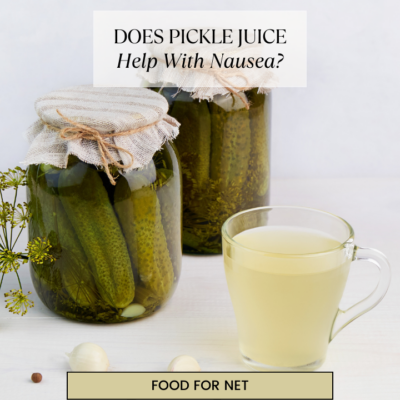

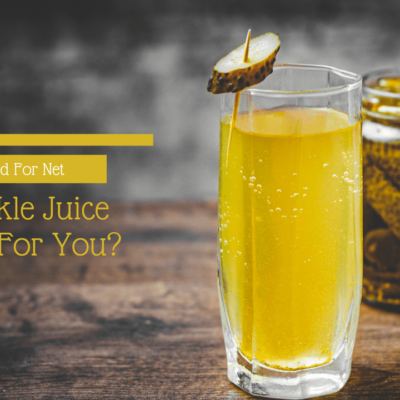
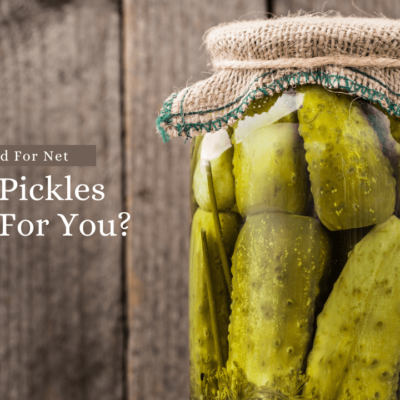

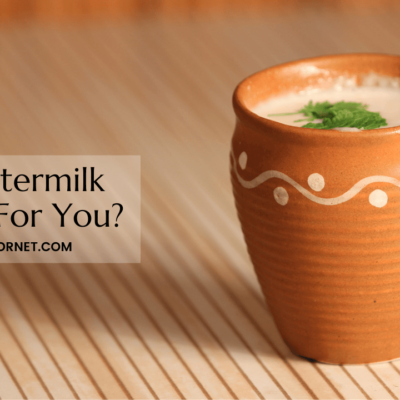
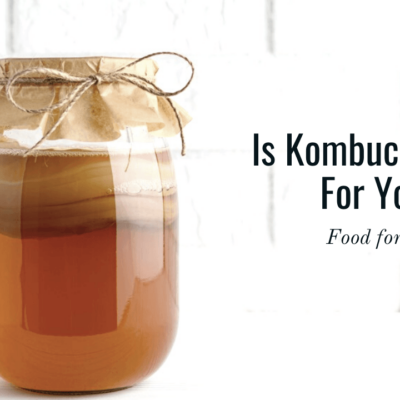
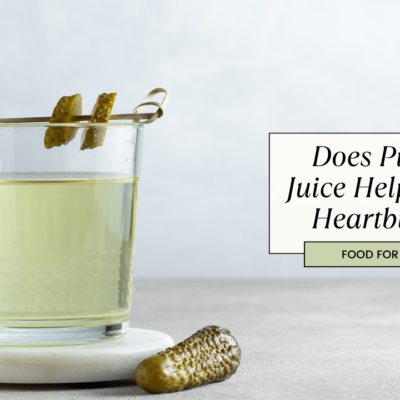


 15 Best Iodine Rich Foods, Plus Five Fancy Dishes For Increasing Iodine Intake
15 Best Iodine Rich Foods, Plus Five Fancy Dishes For Increasing Iodine Intake
Leave a Reply